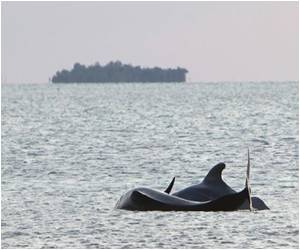
Waugh's team used measurements taken from the early 1990s to the mid-to-late 2000s of the amount of a chemical compound known as "chlorofluorocarbon-12," or CFC-12, in the southern oceans, the journal Science reports.
CFC-12 was first produced commercially in the 1930s and its concentration in the atmosphere increased rapidly until the 1990s when it was phased out by the Montreal Protocol on substances that deplete the ozone layer.
Prior to the Montreal Protocol, CFC-12 was used in products such as aerosol hairsprays and refrigerants and in air conditioning systems, according to a Johns Hopkins' statement.
From those ocean measurements, Waugh's team was able to infer changes in how rapidly surface waters have mixed into the depths of the southern oceans.
Because they knew that concentrations of CFCs at the ocean surface increased in tandem with those in the atmosphere, they were able to surmise that the higher the concentration of CFC-12 deeper in the ocean, the more recently those waters were at the surface.
Advertisement









